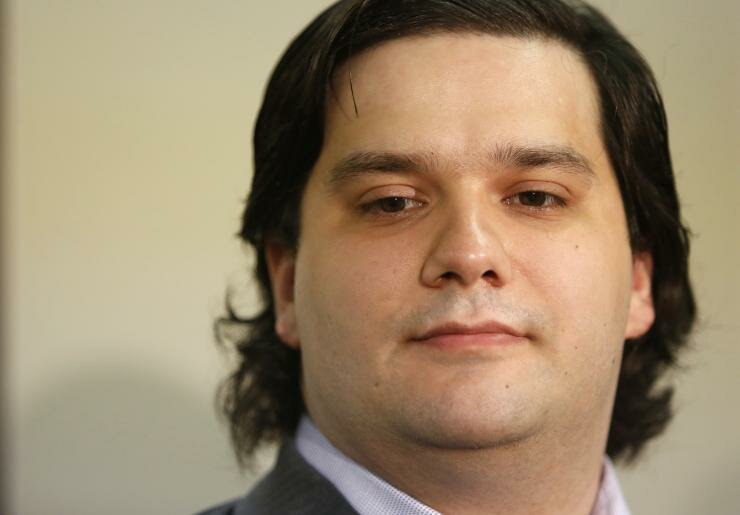At the time of its bankruptcy, MtGox disclosed that it has lost more than 750,000 bitcoin of client funds.
Thomson ReutersMark Karpeles, chief executive of Mt. Gox, attends a news conference at the Tokyo District Court in TokyoTOKYO (Reuters) – Japanese prosecutors have filed charges against Mark Karpeles, the former head of defunct bitcoin exchange Mt. Gox, accusing him of stealing $2.7 million of clients’ money, media reported.
Mr Karpeles has also been accused of falsifying data and improperly transferring MtGox funds.
These formal charges follow months of allegations of fraud, which culminated in Karpele’s arrest by the Tokyo Metropolitan Police.
However, the whereabouts of the money and his involvement appear far from solved.
Karpeles was later rearrested for allegedly siphoning around 321 million yen (HK$20 million) worth of digital currency deposits, extending an initial 3-week incarceration in which time authorities likely forced him to tell the truth regarding the incident.
The company had said that the missing coins were linked to a bug in the software that allowed hackers to pilfer them.
“I’m completely happy the police have made breakthroughs on investigating the lacking fiat cash, however it will be unsatisfying if in any case this time all we get is a conviction for manipulated data and embezzlement exclusively amounting to a fraction of all the cash individuals misplaced”, Bitcoin investor Kim Nilsson advised AFP.
Karpeles later said he had found some 200,000 of the lost Bitcoins in a “cold wallet” – a storage device, such as a memory stick, that is not connected to other computers.
Bitcoins are generated by complicated chains of interactions amongst an enormous community of computer systems across the planet, and will not be backed by any authorities or central financial institution, in contrast to conventional currencies. But critics argue the lack of legal framework governing the currency, the opaque way it is traded and its volatility make it unsafe.
